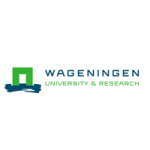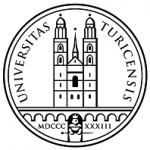项目介绍
Function
The present PhD student position and associated research project is part of the 13 PhD projects of the VIVACE Doctoral Network, funded by the Marie Sklodowska-Curie action of the Horizon Europe programme.
Context on the VIVACE doctoral Network
While outbreaks of highly pathogenic avian influenza viruses (HPAIV) in Europe used to be rare and geographically contained, the situation has dramatically changed in the last few years with thousands of outbreaks reported in domestic poultry and wild birds.
Vaccination of poultry against avian influenza, which used to be prohibited in the European Union (EU) due to trade restrictions, is now being given full consideration, as it is becoming clear that traditional prevention and control approaches alone will not curb the accelerating pace of occurrence of devastating HPAIV epidemics. However, vaccinating poultry does not come without important challenges.
The project VIVACE, gathering 15 leading universities or research institutes and 5 private companies, puts together an ambitious doctoral network to integrate poultry vaccination approaches into efficient management strategies for HPAIV. This interdisciplinary project offers funding for 13 PhD scholarships along the continuum from virology and immunology to spatial and molecular epidemiology, computer sciences and social and behavioural sciences. Irrespective of their background, all doctoral candidates from VIVACE will benefit from a unique international training in these fields, as well as state-of-the-art soft skill development. In doing so, the VIVACE consortium ambitions to train the next generation of scientists with integrated understanding and expertise in avian influenza management.
More information about the project: https://www.inrae.fr/en/news/management-avian-influenza-vaccination-context
Description and objectives of the PhD project
Highly Pathogenic Avian Influenza (HPAI) is a serious disease affecting poultry, with significant economic and public health implications. Vaccination and biosecurity measures (e.g., hygiene protocols or restricting farm access) are critical for controlling outbreaks, but not all farmers adopt these measures.
This PhD project aims to develop a multiple burden model of avian influenza. This means that in close collaboration with other PhD projects within VIVACE (particularly with a project aimed at the economics and two projects aimed at the epidemiology of avian influenza) the environmental and animal welfare disease burden will be modelled. The developed model can be used to evaluate control strategies at farm level that can be updated with newly available information.
Specific objectives of this project are to:
- identify animal-based welfare indicators that are physically affected by the occurrence of avian influenza and elicit welfare impairment weights,
- develop a farm simulation model to study the animal health and welfare burdens of avian influenza and control strategies,
- integrate the environmental burden in the farm simulation model and identify the trade-offs between animal health, welfare, and the environment,
- (quasi-)optimize the model with newly available and farm-specific information to accurately represent the multiple burden effect on farm-specific level.
The candidate will collaborate with an interdisciplinary team of researchers in economics, social sciences, and veterinary sciences to achieve these objectives.
Function Requirements
We are seeking an enthusiastic and results-driven candidate who meets the following criteria:
- An MSc degree with proven knowledge on quantitative modelling of animal health and a proven interest in economics, and/or animal welfare and/or life cycle analysis. Typical MSc degrees could be:
- Animal sciences
- Veterinary Epidemiology
- Veterinary sciences
- Agricultural or business economics
- Strong teamwork skills for multidisciplinary collaboration ;
- Proficiency in both oral and written English (C1 level or equivalent) ;
- Analytical skills with experience in quantitative modelling of animal health or quantitative analysis at the farm level;
- Regional knowledge (preferred): Affinity with or knowledge of Dutch, French, or European livestock production.
You will work here
The research is embedded within the chair Business Economics, you will be supervised by Prof. Henk Hogeveen, Personal professor in the field of animal health management and a world-wide recognized expert in the research field economics of animal health, Dr. Bart van den Borne, Lecturer and researcher, specializing in epidemiology and economics of animal diseases and Dr. Wilma Steeneveld: Assistant professor at the Faculty of Veterinary Medicine, specializing in the economics of animal health.
Contactinformation
For more information about this position, please contact prof. Henk Hogeveen (henk.hogeveen@wur.nl)
For more information about the procedure, please contact Noorien Abbas, Corporate Recruiter, recruitment.ssg@wur.nl .
相关项目推荐
KD博士实时收录全球顶尖院校的博士项目,总有一个项目等着你!





